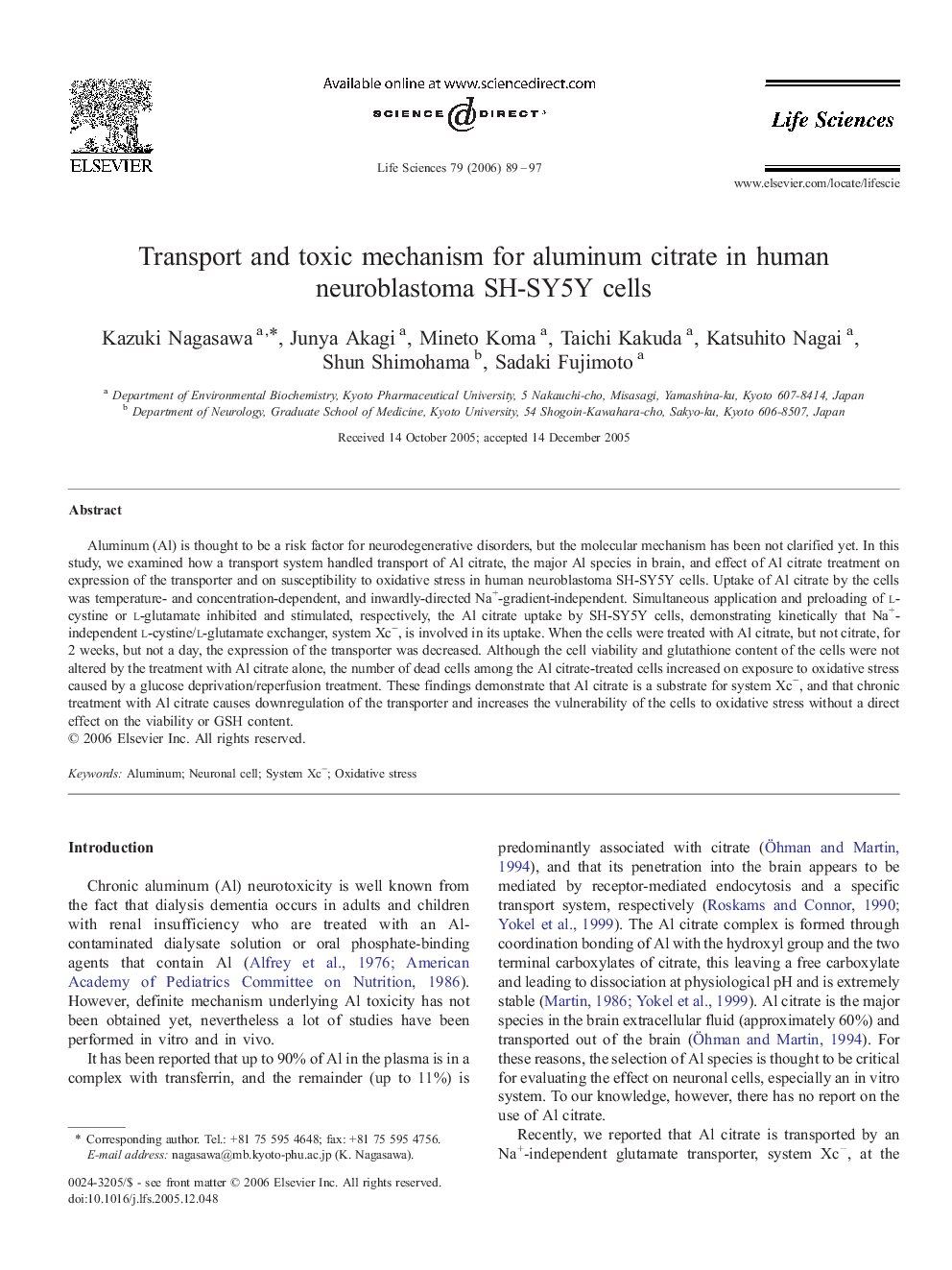| Article ID | Journal | Published Year | Pages | File Type |
|---|---|---|---|---|
| 2554100 | Life Sciences | 2006 | 9 Pages |
Aluminum (Al) is thought to be a risk factor for neurodegenerative disorders, but the molecular mechanism has been not clarified yet. In this study, we examined how a transport system handled transport of Al citrate, the major Al species in brain, and effect of Al citrate treatment on expression of the transporter and on susceptibility to oxidative stress in human neuroblastoma SH-SY5Y cells. Uptake of Al citrate by the cells was temperature- and concentration-dependent, and inwardly-directed Na+-gradient-independent. Simultaneous application and preloading of l-cystine or l-glutamate inhibited and stimulated, respectively, the Al citrate uptake by SH-SY5Y cells, demonstrating kinetically that Na+-independent l-cystine/l-glutamate exchanger, system Xc−, is involved in its uptake. When the cells were treated with Al citrate, but not citrate, for 2 weeks, but not a day, the expression of the transporter was decreased. Although the cell viability and glutathione content of the cells were not altered by the treatment with Al citrate alone, the number of dead cells among the Al citrate-treated cells increased on exposure to oxidative stress caused by a glucose deprivation/reperfusion treatment. These findings demonstrate that Al citrate is a substrate for system Xc−, and that chronic treatment with Al citrate causes downregulation of the transporter and increases the vulnerability of the cells to oxidative stress without a direct effect on the viability or GSH content.
